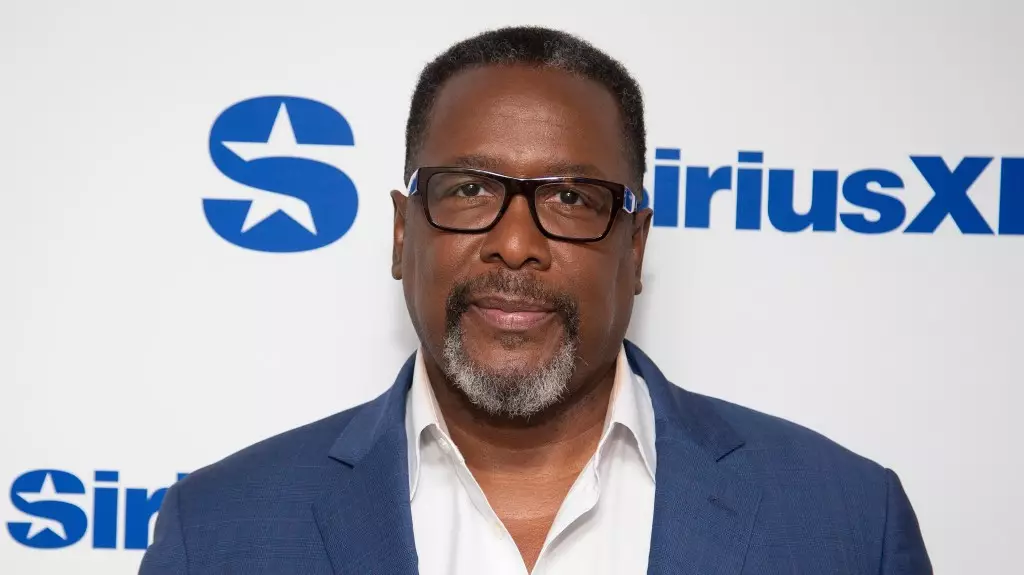The exhilarating atmosphere of sports events is often marred by the unruly behavior of a few, as Wendell Pierce, an actor famed for his roles in *The Wire* and *Suits*, recently discovered at a World Series game. While one might expect a celebratory dusk filled with cheers, camaraderie, and healthy rivalry, Pierce’s experience serves as a sobering reminder of how quickly excitement can transform into discomfort in the realm of sports fandom. Despite being a fan of both the Los Angeles Dodgers and the New York Yankees, Pierce found himself leaving Yankees Stadium prematurely, shaken by the hostility of some fellow fans.
Pierce’s early departure from the game stems from an unexpected confrontation that escalated quickly. In his own words, he was engaging in what should have been a spirited but light-hearted conversation with a Dodgers supporter when the atmosphere turned hostile. The incident highlights a growing concern in sports culture: fan behavior. His recollections from that night, shared through social media platforms, underline the discomfort felt by many who enter stadiums hoping for an enjoyable experience.
In a society that often romanticizes sports rivalries, it’s easy to forget that these same rivalries can foster an environment where aggression and incivility thrive. Pierce’s experience serves as a cautionary tale, showcasing how the actions of a few can overshadow the accomplishments of athletes and the joy of spectatorship.
In a modern twist, Pierce took to the social media platform X to voice his frustrations, showcasing the powerful role that social media plays in shaping public discourse around sports events. His tweets serve not just as a personal venting space but as a commentary on the state of sports fandom. He expressed that the beauty of sports—the artistry, the talent, the sheer excitement—was overshadowed by the “unruly, obnoxious” behavior exhibited by some attendees.
As fans flock to stadiums, social media becomes a ripple-effect mechanism, amplifying sentiments both positive and negative. While players and teams can garner support and celebrate victories online, the darker side of sports—that of fan aggression and hostility—can equally garner attention, as seen in Pierce’s reflective post-game narrative.
Consequences of Rowdy Fan Behavior
Cases of disruptive fan actions are not confined to a single event or team. What Pierce encountered is part of a larger trend that has garnered attention in recent years. The character of sports events can be dramatically altered when rowdy fans disrupt the experience, as highlighted by a prior incident involving a Yankees fan attempting to steal a caught ball from Dodgers outfielder Mookie Betts. Such acts not only attract condemnation but can also lead to bans, illustrating the potential repercussions of irresponsible behavior.
Additionally, the broader impact of fans’ unruly demeanor extends beyond individual experiences, affecting the reputation of teams and their loyal supporters. As shown when MLB players like Betts express their dismay, the simmering atmosphere created by hostile fans can disrupt the integrity of the game itself.
As Pierce lamented in his posts, the essence of sports is rooted in competition, celebration, and mutual respect among players and fans alike. Comparisons drawn to the Olympic spirit, where sportsmanship is at the forefront, evoke a sense of nostalgia for the purity of athletic competition. When fans adopt an attitude of aggression, it detracts from the experience for everyone involved, fostering an environment where enjoyment is overshadowed by fear of confrontation.
In his harrowing experience, Pierce expressed a newfound indifference towards the outcome of the World Series as a whole, encapsulating the notion that a negative experience can diminish the thrill of victory. With memories clouded by hostility, the question looms—how can the sports community cultivate a culture that prioritizes respect and mutual admiration over aggression?
Ultimately, Wendell Pierce’s experience serves as a potent reminder of the delicate balance required in maintaining the integrity of sports culture. Passion should reign, but when it tips into unruliness, it not only spoils the fun for others but also threatens the very fabric of the game we love.


Leave a Reply